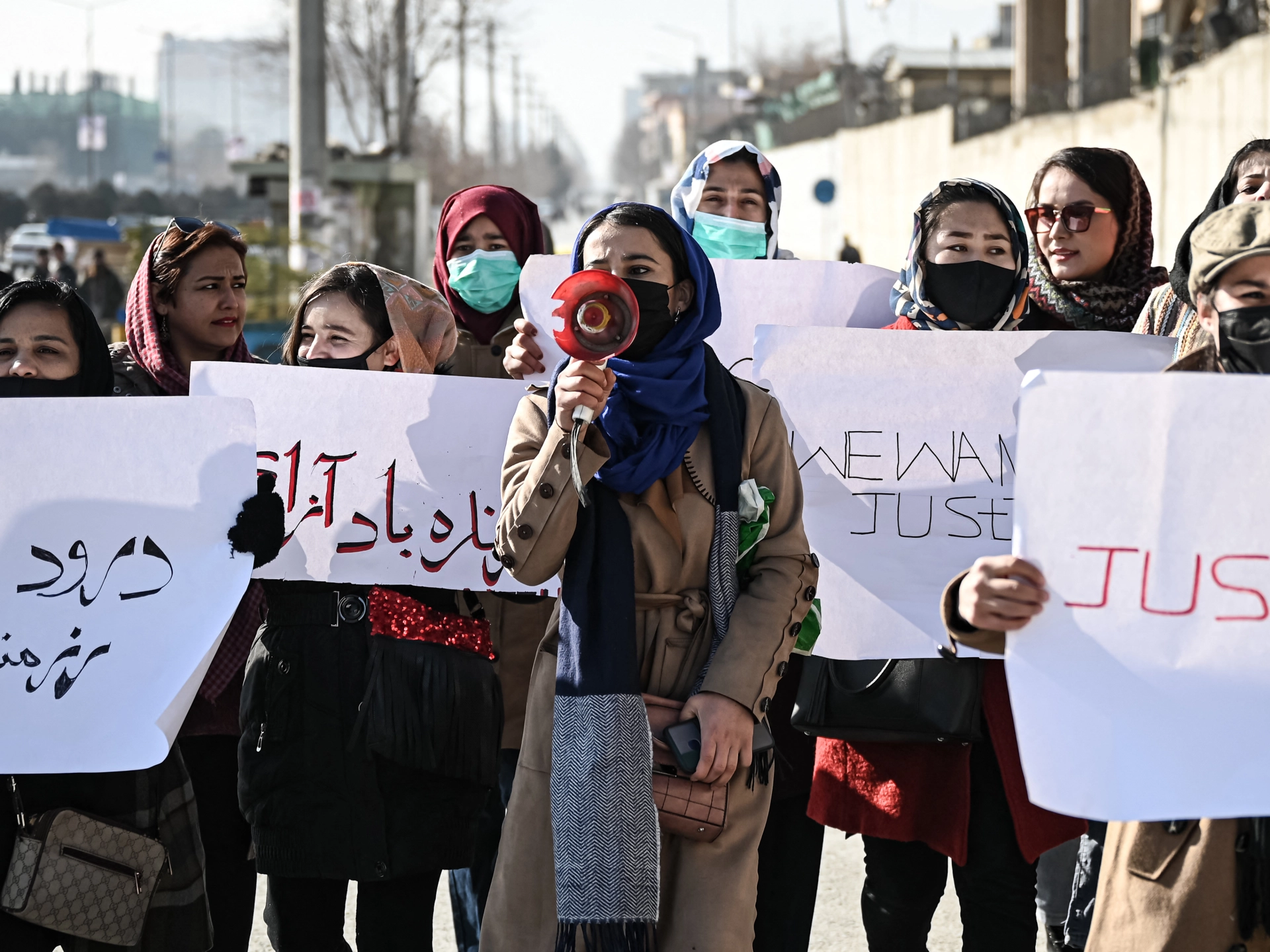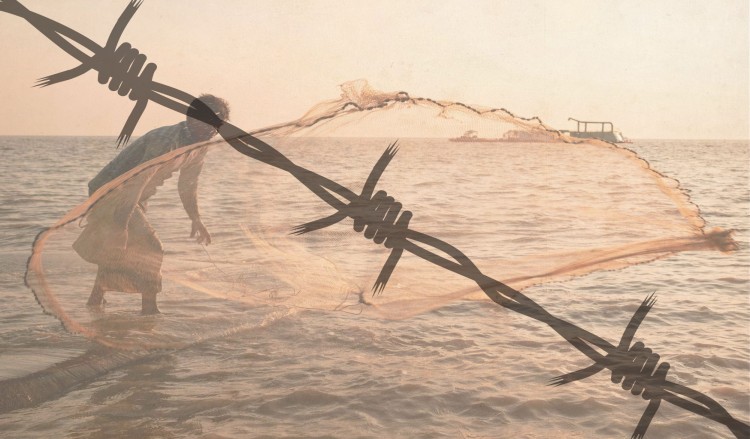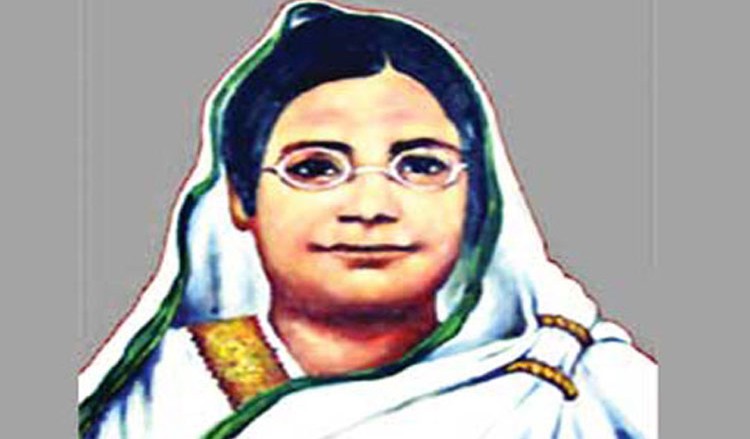- 21 December, 2022
- 0 Comment(s)
- 603 view(s)
- লিখেছেন : Amartya Banerjee
As I write (it is 7.25pm in India, 21/12/2022), twenty hours ago journalist Yalda Hakim of BBC broke the news on Twitter that Taliban has officially initiated the procedures to ban women from the universities of Afghanistan. The indications were there, apprehensions were running high. Since the fundamentalist bigots took control over the nation in August 2021, women in Afghanistan lived under constant terror, threats and outright dominance from the chauvinist hot-heads and were worried about their future, their lives as well as their careers, all of which suddenly went into a toss. They didn’t have the time to ‘take it all in’ as we say, only the stories they have listened from their predecessors about what happened between the years 1996 to 2001, when the Talibs ruled about three-quarters of their land and unleashed a regime of terror amongst the female population, brought shivers down their spines as they tried to ‘prepare’ themselves from what awaited them under such a ‘government’ in power. ‘Education’ immediately became the word that must not be spoken out loud in the streets. The women of Afghanistan waited for the hours to tick by and the Talibs, mostly due to foreign pressures and their initial desire to maintain an apparently clean sheet at the beginning, allowed part of women’s education to continue with ‘proper vigilance’ and ‘caution’ from their sides throughout the country. It was only a matter of days, moments or months, when the Taliban would have declared complete ban of women from education. But the recent events from Iran, and their own country of governance i.e. Afghanistan itself (where too incidents have sparked up), it created a sense of reckoning amongst the administration which indeed compelled or sped up this process of banning women from university education as the regime stands strongly against any kind of enlightenment for them.
The situation of women, living under the threats of Sharia Law or the clerics in power, it remains more or less the same throughout the world. The only difference being their state of existence, whether they are protesting or not – against the laws and policies of their dwelling country, and undoubtedly the countries Iran and Afghanistan stand first in line where the women have spoken up, came out and demonstrated strongly against the bigotry and claimed their rights on the streets. History had been in favour of them. For the women of these two countries they are like the birds, to them you have given their wings, taught them to fly and eventually clipped their feathers afterwards. They are unable to fly anymore. Their knowledge runs dormant in their veins. They are aware of the taste. They know how the free winds pass, softly over their bodies, rejuvenating their limbs and minds together. They flew freely once, and shone brilliantly across the skies. They are no more allowed to do so. Think for once, how it feels to have learnt to dream and then denied the permission to use the knowledge acquired. You know how the food tastes. You are not allowed to eat, and you are beaten, molested, raped and killed if you desire. We can only write about them. We can only use words, letters, sentences or paragraphs – highlighting, decorating and reinventing thoughts about solidarity, about compassion and empathy towards the sufferers, but one can never be in the same league. One can never comprehend how exactly it feels to have taught to dream and denied to do the same, all at once over generations in repetition.
A hundred years ago Afghanistan had a queen to boast about, who campaigned for gender equality and female education and also established the first ever school for girls in the country. Legend goes that Queen Soraya Tarzi (married to King Amanullah Khan of Afghanistan) went out for public meetings without a head-cover and promoted strongly for progress and education of Afghan women. As early as in 1921 the first primary school for girls in Afghanistan, was established in Kabul under the royal patronage of Queen Soraya herself, and was named as the ‘Masturat School’ (or the School for the Womenkind) which continued to exist till the royalties were forced to flee the country following a revolution and civil war in 1929. The larger section of present day Afghan historians believe that false information were propagated by the British government (ruling at that time in India and England) amongst the Afghan people, just after the King and Queen returned from a tour in Europe, with a clear intention to discredit and hamper latter’s works towards progress and betterment of the country. However, during that very short reign of King Amanullah Khan and Queen Soraya in Afghanistan, the seeds of progress and education were already sown in the barren, uncultivated tracts of the mountainous nation for future blooms. Fifteen students from the ‘Masturat School’ were sent to Turkey in 1928 for higher education purposes. But for a hundred years after in history, since the time of Soraya and Amanullah’s governance, the nation remained a battleground for political and ideological adversaries, mostly coming from or influenced by the Western Nations for their own economic and hegemonic purposes. The people of Afghanistan were shown the skies, efforts were made to influence them to appreciate its abundance, and then they were suddenly wrapped up again and gagged in darkness forever.
It had been a hundred years since Soraya or Amanullah, it had been decades since the Iranian poet Forugh Farrokhzad died in a car crash in Tehran, who defied all norms for chauvinist dominance in Iranian sphere of culture, and their legacies seem to run through the bloodstreams of present day female population in these two countries where the ‘rebels’ simply refuse to stop of accept conditions. Yet, we can only think of the horrors they are facing at this moment, or the price they are paying for this disobedience, but the entire womankind of the world will rejoice and bask in their glories afterwards, once the battle is won and over.
We sound optimistic. We should sound so I presume. Standing thousands of miles apart, one can only use his or her words or letters to express the deep sense of solidarity and compassion towards the ones who are actually on ground and are defying the brutalities in real. One can never actually feel their pains and sacrifices. But however little one can contribute in spreading the words throughout the world, breaking the barriers of national, cultural or regional divides – it will eventually send in a feeling of warmth towards the suffering populace and will enable them to survive and sustain their fights in the days to come.
The Talibs can ban Women from Education but they will never be able to ban Education from reaching them. #LetHerLearn is already trending in Twitter, Afghanistan as I write. #StopHazaraGenocide did the same. The more they come for education and educational institutions, the stronger will become the resolve of Afghan women and the fight will continue towards a decisive culmination. Let not the Western Nations jeopardize the future of Afghanistan for their hegemonic purposes. Let the concerned population and citizenry which stands for reason and education across the world, unite and stand in whatever forms possible for the cause of women in Afghanistan and beyond, for the cause of progress and education today. We repeat the call to end it here,
#LetHerLearn in Afghanistan, in Iran and in every part of the world where anyone, at any time dares to deny her the privilege, anywhere and if ever!





0 Comments
Post Comment